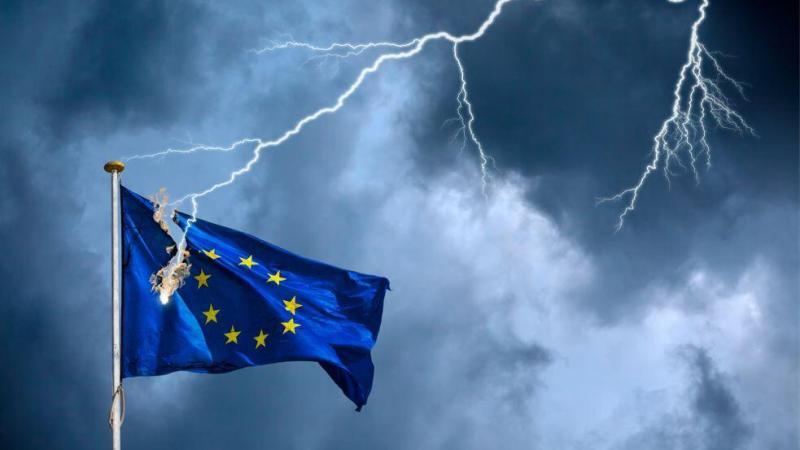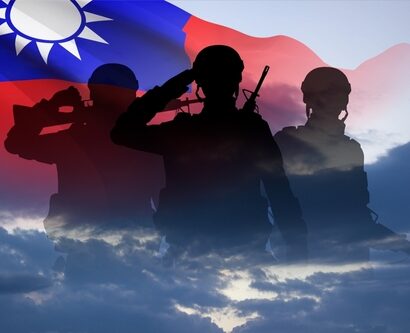Abstract: As the world enters an emerging phase of instability and great-power competition, Europe will face an array of new and old geopolitical challenges. Despite the various attempts of reconciliation, Russia is likely to remain the main security problem. Changes in the balance of power, in addition to history, ideology and geography put Moscow in direct confrontation with the rest of Europe and the United States. At the same time, the rise of Turkey and China creates new challenges and risks for Europe.
Bottom-line-up-front: Systemic and structural factors underpin the challenges for European defence. In their attempt to re-establish their former great-power status, Russia, Turkey, and China can be considered the main threats. Much will depend on their ability to sustain long-term economic growth as this is the main element upon which a country’s power depends.
Problem statement: How to best guarantee the security of Europe in a time of systemic change when old powers are rising again?
So what?: While diplomatic engagement and dialogue are always necessary to reduce tension, create an atmosphere of trust and foster cooperation, a credible military deterrence needs to be put in place to guarantee European security and reduce the likelihood of war.

Source: shutterstock.com/Martin Bergsma
History doesn’t Repeat Itself but It Does Rhyme
As new and old challenges are emerging, Europeans cannot take their security for granted anymore. Besides the threat of piracy, terrorism, cyber-attacks and criminal organisations, one of the distinctive features of the coming years will be the return of state-on-state competition. Above all, Russia, Turkey and China are likely to be the main security challenges for Europe.
As stated by both NATO[1] and by the EU[2], Russia will continue to represent the biggest threat to European security and order. Although the war in Georgia in 2008 and the annexation of Crimea in 2014 can be considered the main reasons for this evaluation, deeper and systemic reasons underpin this assessment. It is important to note that while Russia has got back on its feet following the dissolution of the Soviet Union, it has been downgraded from a superpower to a declining regional power. Much of its former sphere of influence and security has been swallowed by the enlargement of NATO and the EU. This has led Moscow to engage in aggressive foreign policy to protect its security interests and to reassert what it considers as its sphere of interest in Europe and rightful place in the international order as a great power[3]. This change in the balance of power is compounded by a history of reciprocal invasions and wars between Russia and the rest of Europe, which further erodes trust and communication between the two parties. In particular, many former socialist countries in central and eastern Europe are fearful and resentful toward Russian actions and power.
It is important to note that while Russia has got back on its feet following the dissolution of the Soviet Union, it has been downgraded from a superpower to a declining regional power. Much of its former sphere of influence and security has been swallowed by the enlargement of NATO and the EU.
On Perceptions, Shortfalls and Adversaries
As a result of this, Russia and the West are now locked in a dangerous geopolitical competition for power, security and prestige. However, not everyone in Europe perceives the threat from Moscow to the same extent. The UK and the US can be considered as the main adversaries of Russia. Whereas countries in central and eastern Europe, like Poland, Romania and the Baltic states, are the most hawkish because of their geography and history. Meanwhile, others such as France and Germany adopt a more diplomatic approach[4]. As a result, from a strictly European perspective, two main problems arise. The first has to do with its ability to keep a united front against Russia and the US actively involved in the security of the continent. Only the US at the moment possesses nuclear and conventional forces capable of withstanding that of Russia, while Moscow can use a divided Europe to get the upper hand and reach its geopolitical goal. The partnership with Berlin over the natural gas pipeline Nord Stream 2 well illustrates this point. Moscow is currently benefiting from this deal with Germany since it is creating frictions among some European countries, like Poland and Ukraine vis-à-vis Germany, which oppose it for fears that it would expand Russian influence over the continent.
The second problem concerns the capacity of NATO military forces to create an efficient deterrence against Russia and defend European borders. After years of military cuts, Western powers and especially Europeans urgently need to boost their armed forces and fill the operational capability gaps, especially with regard to anti-submarine-warfare, command, control, communications,computer, intelligence, surveillance and reconnaissance (C4ISR), air refuelling,suppression of enemy air defences (SEAD), cyber warfare, armoured vehicles and long-range precision fire.[5] The adoption and integration of new technologies and the strengthening of national resilience are also critical.[6] Having said that, one should be careful not to overestimate Russia’s power. Many of its weapon systems are less efficient than what is publicly claimed[7], and above all, Russia’s economy cannot sustain a long-term conflict with the much bigger Western countries.
After years of military cuts, Western powers and especially Europeans urgently need to boost their armed forces and fill the operational capability gaps…
The situation with Turkey is slightly more complicated. Ankara is a NATO member and an official candidate to the European Union, although the chances to obtain membership are very low. Under this perspective, one might think of Turkey as an ally of Europe and not a threat. While it is true that Turkey shares some common interests with the rest of NATO allies, especially an antagonism against Russia, this threat assessment of the country is simplistic and short-sighted. Turkey, too, is a returning and rising regional power trying to regain its former status as a great power with a sphere of influence spanning across the Middle East, North Africa, and Southeast Europe.[8] Namely, the areas that were once part of the Ottoman Empire. Driven by a young and growing population and supported by an expanding economy, though temporarily in crisis now, Turkey has embarked on an assertive and militaristic foreign policy in the eastern Mediterranean over the last years, which caused frictions with some European countries above all France and Greece. In particular, tensions with Greece over Cyprus, and worsened by centuries of rivalry, have often risked degenerating into open conflict. Turkey’s military involvement in Libya, a gateway for migrants to reach Europe and a hotbed for potential terrorists, is also a cause of concern. In addition to Turkey’s ambition and geopolitical rise, these tensions and military incursions are unlikely to vanish and might constitute a structural feature of European (in)security that should deserve more attention from policymakers.
China might also constitute a security problem for Europe in the coming decades. Despite the geographical distance, China is a rising power and is the only peer competitor of the United States. As its economy expands, so does its armed forces and global reach. With the worsening of its rivalry with the United States, the risk of global conflict with potential repercussions to European security increases. It is no surprise if, since 2019, China has become a point of discussion in NATO meetings.[9] In particular, China’s growing naval power constitutes the main concern for European defence due to its increased presence and ambition in the Mediterranean, Arctic and North Atlantic. Improvement in military technology, strategic communication (e.g. G5) and closer defence ties with Moscow are other sources of concern.[10] Equally important is the antithetical domestic structure of China, which is a peculiar blend of aspects of communism, capitalism and traditional Chinese values. This regime type adds an ideological and normative dimension to the rivalry, as it puts the country in systemic opposition to the West-led liberal international order.
With the worsening of its rivalry with the United States, the risk of global conflict with potential repercussions to European security increases.
To conclude, the security landscape in Europe will be characterised increasingly more by the return of great-power competition. Russia will continue to represent the main security challenge due to its military power, historical animosity and geographical proximity with the rest of Europe. If they continue to rise, Turkey and China might constitute a security threat for European defence as well. Therefore, while international trade and dialogue are necessary to improve diplomatic relations and foster cooperation, only a strong military deterrence can ultimately guarantee the security of Europe by discouraging potential aggressors and reducing the likelihood of war. However, after years of cuts and a lack of strategic thinking, Europeans do not seem prepared to provide for their own security. Hence, in addition to reinforcing their militaries and enhance interstate cooperation, Europeans should also move beyond their pacifist mindset to adopt a more assertive and realist foreign policy in which military force is strategically deployed for deterrent and other security purposes. Otherwise, the risk is, to use the words of former German Foreign Minister Sigmar Gabriel, to be “a vegetarian in a world of carnivores”[11].
However, after years of cuts and a lack of strategic thinking, Europeans do not seem prepared to provide for their own security.
Stefano Marras holds double masters’ graduate in history at the University of Bologna and international relations at Utrecht University. His research interests are in history, IR theories, European security and foreign policy, emerging technologies. The views contained in this article are the author’s alone.
[1] NATO, “Brussels Summit Communiqué Issued by the Heads of State and Government Participating in the Meeting of the North Atlantic Council in Brussels 14 June 2021,” NATO, last accessed August 01, 2021, http://www.nato.int/cps/en/natohq/news_185000.htm.
[2] European Union, “A Global Strategy for the European Union’s Foreign and Security Policy,” last accessed August 02, 2021, https://eeas.europa.eu/archives/docs/top_stories/pdf/eugs_review_web.pdf.
[3] Mikhail Suslov, ““Russian World” Concept: Post-Soviet Geopolitical Ideology and the Logic of “Spheres of Influence”,” Geopolitics 23, n. 2 (3 April 2018): 330–53, https://doi.org/10.1080/14650045.2017.1407921; Dmitri Trenin, “Russia’s Spheres of Interest, not Influence,” The Washington Quarterly 32, n. 4 (1 October 2009): 3–22, https://doi.org/10.1080/01636600903231089; Eugene Rumer, “Russia and the Security of Europe,” Carnegie Endowment for International Peace, last accessed August 02, 2021, https://carnegieendowment.org/2016/06/30/russia-and-security-of-europe-pub-63990; Michael McFaul, Stephen Sestanovich, and John J. Mearsheimer, “Faulty Powers: Who Started the Ukraine Crisis?,” Foreign Affairs 93, n. 6 (2014): 167–78.
[4] Kadri Liik, “Winning the Normative War with Russia: An EU-Russia Power Audit – European Council on Foreign Relations,” ECFR (blog), May 21, 2018, https://ecfr.eu/publication/winning_the_normative_war_with_russia_an_eu_russia_power_audit/.
[5] Atlantic Council, “NATO at Seventy: Filling NATO’s Critical Defense-Capability Gaps,” April 04, 2019, https://www.atlanticcouncil.org/in-depth-research-reports/report/nato-at-seventy-filling-nato-s-critical-defense-capability-gaps/; IISS, “Defending Europe: Scenario-Based Capability Requirements for NATO’s European Members,” last accessed July 20, 2021, https://www.iiss.org/blogs/research-paper/2019/05/defending-europe; IISS, “Europe Can Defend Itself,” last accessed July 20, 2021, https://www.iiss.org/blogs/survival-blog/2020/12/europe-can-defend-itself.
[6] The German Marshall Fund of the United States, “Next Steps in NATO Deterrence and Resilience,” last accessed June 11, 2021, https://www.gmfus.org/publications/next-steps-nato-deterrence-and-resilience.
[7] Robert Dalsjö, Christofer Berglund, and Michael Jonsson, “Bursting the Bubble? Russian A2/AD in the Baltic Sea Region : Capabilities, Countermeasures, and Implications,” Report, Swedish Defence Research Agency, 2019, http://muep.mau.se/handle/2043/30208; Michael Kofman, “Beyond the Hype of Russia’s Hypersonic Weapons,” The Moscow Times, January 15, 2020, https://www.themoscowtimes.com/2020/01/15/russias-hypersonic-weapons-a68907; IISS, “Europe Can Defend Itself,” last accessed July 20, 2021, https://www.iiss.org/blogs/survival-blog/2020/12/europe-can-defend-itself.
[8] Clemens Hoffmann, “Neo-Ottomanism, Eurasianism or securing the region? A longer view on Turkey’s interventionism,” Conflict, Security & Development 19, n. 3 (4 May 2019): 301–7, https://doi.org/10.1080/14678802.2019.1608016; Centre for European Reform, “Turkey Rising?,” last accessed July 20, 2021, https://www.cer.eu/publications/archive/bulletin-article/2020/turkey-rising; Caroline D. Rose, “As Turkey’s Economy Goes, So Goes Its Ambitions,” Geopolitical Futures (blog), 30 September 2020, https://geopoliticalfutures.com/as-turkeys-economy-goes-so-goes-its-ambitions/.
[9] IISS, “What next for NATO and China?,” last accessed July 20, 2021, https://www.iiss.org/blogs/analysis/2021/06/nato-china.
[10] NATO, “NATO 2030: United for a New Area. Analysis and Recommendations of the Reflection Group Appointed by the NATO Secretary General,” last accessed July 20, 2021, https://www.nato.int/nato_static_fl2014/assets/pdf/2020/12/pdf/201201-Reflection-Group-Final-Report-Uni.pdf.
[11] Deutsche Welle (www.dw.com), Germany’s Gabriel: «We Need a European Moment» | DW | 17.02.2018, last accessed August 02, 2021, https://www.dw.com/en/germanys-gabriel-we-need-a-european-moment/a-42624573.






